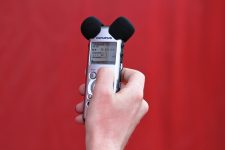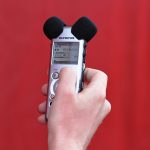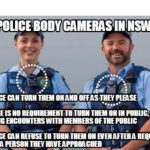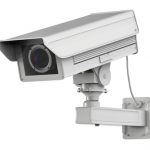The Law in NSW: Recording Conversations

Thanks to the proliferation of smartphones and other surveillance technology which is readily available to consumers, it is now easier than ever to make video and audio recordings of people, whether you have their consent or not.
But whether it is companies recording phone conversations for training purposes, or individuals recording conversations to help them obtain evidence for a legal or criminal matter, the law is complex when it comes to audio recordings.
In New South Wales
Listening device legislation is primarily state based.
The Surveillance Devices Act 2007 is the main piece of legislation which governs the use of such devices in NSW.
Section 7 of that Act makes it an offence punishable by up to five years’ imprisonment and/or $55,000 for a person to knowingly install, use or cause to be used or maintain a listening device to overhear, record, monitor or listen to a private conversation to which the person is not a party, or to record a private conversation to which the person is a party.
A ‘listening device’ is defined by the Act as “any device capable of being used to overhear, record, monitor or listen to a conversation or words spoken to or by any person in conversation, but does not include a hearing aid or similar device…”. This includes a mobile phone or other digital device.
A ‘private conversation’ is defined “as any words spoken by one person to another person or to other persons in circumstances that may reasonably be taken to indicate that any of those persons desires the words to be listened to only by themselves, or by themselves and by some other person who has the consent, express or implied, of all of those persons to do so, but does not include a conversation made in any circumstances in which the parties to it ought reasonably to expect that it might be overheard by someone else.”
However, there are a range of exceptions to the prohibition contained in section 7, which include:
- the use of a listening device with a warrant or other legal authorisation, or to record the refusal of a police interview, or to locate and retrieve the device, or where it is used by police to record the operation of a Taser, or on police body-worn video equipment, and
- the unintentional hearing of a private conversation by means of a listening device.
In addition, it is not an offence to record a private conversation to which a person is a party if:
- all of the principal parties to the conversation consent, expressly or impliedly, or
- a principal party consents and the recording of the conversation:
– is reasonably necessary for the protection of the lawful interests of that principal party, an exception for which there has been case law in 2020, or
– is not made for the purpose of communicating or publishing the conversation, or a report of the conversation, to persons who are not parties to the conversation.
A ‘principal party’ is defined as “a person by or to whom words are spoken in the course of the conversation”.
Case study
In 2010, the producer and a presenter of the well-known TV program A Current Affair were found guilty of breaching the Act when a story they ran involved publishing the recording of a telephone conversation which was obtained without the knowledge of one of the parties.
Although the producer of the program was found guilty for setting up the surveillance devices to record the conversation, the story was deemed to have been in the public interest and the recordings were considered to be admissible in court.
In the event that the matter relates to a court case or other legal issue, any evidence that is obtained as a result of an illegally recorded conversation may not be admissible in court.
This is a matter for the judge or magistrate’s discretion, and will depend on a number of different factors including how important the evidence is to the case and whether that outweighs the circumstances surrounding when and how it was obtained.
Surveillance warrants
Police can apply for a surveillance warrant in order to lawfully record a person.
To apply for a warrant, a police officer has to have reasonable grounds to suspect that someone is about to commit an offence, or that an offence has been committed, or that an offence is likely to be committed.
There also has to be an investigation into the alleged offence, or be likely that an investigation will arise, and the police officer has to show that surveillance will be necessary in that investigation.
Whether or not a warrant will be granted depends on the judge or magistrate’s discretion.
Some of the factors which will be considered include the nature and severity of the alleged offence, the likely intrusion on the privacy of the person or persons being recorded, and whether there are alternative ways of obtaining the evidence that is needed.
They will also consider what value the evidence which is likely to be obtained will have to the case as a whole.
Once a surveillance warrant is granted, it will give very specific guidelines as to the type of device which is approved, and how it can be used.
If police breach those guidelines, any evidence obtained may be inadmissible in court.
The warrant will state rules like where the surveillance device is authorised to be used, by who, and for how long.
If you suspect that your conversations are being recorded or if you have recorded someone else’s conversation and aren’t sure whether or not you can use it in court, speak to an experienced criminal lawyer as soon as possible or refer the matter to police.






